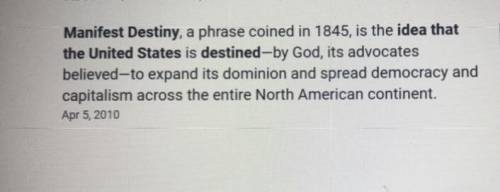

according to the denotation of “repeat,” history can’t repeat itself. (and if you want to get technical and into chaos theory, neither can anything else.) unlike lab-controlled experiments that can be exactly replicated (although not really), humans are life is always evolving and unpredictable and involves incalculable symbiotic relationships.
but, if we consider “repeat” as both a metaphor and in terms of its connotation, we can understand what people mean by “history repeats itself,” and it actually emerges as a useful conceptual tool. as mark twain put it, “history does not repeat itself, but it does rhyme.”
the vast, vast majority of people don’t in anyway think that history literally, exactly repeats itself. such would violate celebrated philosophies of free will. when people say that history repeats itself, they are generally thinking of broad patterns. another way to describe these patterns or relationships would be to describe them as cause and effect relationships. they are thinking about the existence of and continuation of
war,
poverty,
colonialism,
racism,
sexism,
classism, or
social movements, to list only a few of the repeated/unending phenomena of human history.a more specific example could be that every step forward in the long african-american civil rights movement has resulted in new forms of discrimination. lynching, disenfranchisement, and neo-enslavement (collectively called “jim crow”) replaced codified plantation and urban enslavement after the civil war and reconstruction era. today, the “new jim crow” (a system where by at least 1 out of every 3 black men are confined in the criminal justice system) replaced jim crow after the modern civil rights movement of the 1940s, 50s, and 60s.
people remain “babies” on the evolutionary ladder – we are greedy, shortsighted, and quick to buy into fear of “the other.” spending time trying to argue that history doesn’t repeat is ultimately not very productive for historians, a debate primarily involving semantic differences.
furthermore, if nothing “repeated,” it would quickly become impossible to study anything. much of what we study is about relationships between times and places. on the other hand, if we “dig deep,” language repeats all the time per se. if we had to relearn language every day, we would never progress. by saying “history repeats,” we are recognizing the ways in which we are bound to this world and products of it. this is not to say that nothing ever improves or changes.
as historians, we can and should use the real meanings behind notions that history repeats to students enjoy and embrace the study of our world. indeed one of the many reasons i enjoy studying history, as i tell students in my “what is history? ” lecture, is that history is comforting and allows us to see the world as a more steady place. according to the news and joe public, crime, poverty, you name it, are worse now than it ever has been. if we look at historical evidence, we can find that such fears are unnecessary. likewise, every generation says the previous generation had it better or older adults long for the time when they were adolescents when the world was a better, safer place (i call this the myth of the utopia past).
finally, although human events can never come close to any kind of true replication, history belongs to both the liberal arts and the sciences. that history is a liberal art needs no explanation. that history is also a science, however, is where i tend to meet objections.
scientists follow the scientific method. they follow a series of steps to ensure their work is the best it can be given current resources. don’t historians do this? historians come up with questions, look for evidence, analyze evidence, weave in secondary material, write and edit, edit some more, and then go through peer-reviewers both informally and formally. this is indeed the historian’s equivalent of the scientific method. historical narratives or theories about the past are no more or less theories or narratives as human evolution or the big bang, for example. all scholarship involves theory and explanation based on evidence.
likewise, for reasons i haven’t fully grasped or studied yet, science tends to have more credibility with the public. people tend to perceive history as always changing, unstable, and inherently biased by “crazy, liberal academics.” in reality, science changes just as much, is just as unstable, and has just as many biases. in other words, history and any of the specific branches of science are all social constructions- both the discipline themselves and scholarship produced. by promoting the study of the past as a science, perhaps historians would have more automatic credibility.
be sure to check out: the nature of history and the history of history, i am many things but a “history buff” is not one of them. – hidden power of words series, #14, and my other postings about history, too!
explanation:

information is crucial for making good decisions


Another question on History




...

























